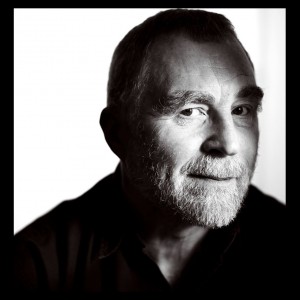
Olav Anton Thommessen (b. 1946) is among the most important Norwegian composers and has received commissions from all the larger Norwegian orchestras and festivals as well as from institutions abroad. He holds a professorship in composition at the Norwegian State Academy of Music. His compositions include symphonic works, chamber music pieces, vocal music works and operas. An almost late Romantic style characterizes Thommessen´s earliest works, but gradually he has developed a more modern language with dynamic contrasts, a strong rhythmic…
Olav Anton Thommessen (b. 1946) is among the most important Norwegian composers and has received commissions from all the larger Norwegian orchestras and festivals as well as from institutions abroad. He holds a professorship in composition at the Norwegian State Academy of Music. His compositions include symphonic works, chamber music pieces, vocal music works and operas. An almost late Romantic style characterizes Thommessen´s earliest works, but gradually he has developed a more modern language with dynamic contrasts, a strong rhythmic vitality and volcanic eruptions of sound, remaining anchored in tonality. From 1972 onwards, he distinguished himself as a composer having performances of his works at festivals and by known ensembles. Some Sound was nominated for the ISCM festival in London 1972, Down-Up/Sunpiece was premiered by the Oslo Philharmonic in 1973. After this breakthrough, he received several commissions: Stabsarabesk; The Secret Gospel; The Overtone and The Hermaphrodite are all important works from this period. At the beginning of the 1980s, Thommessen began incorporating quotes from music history into some of his compositions. The first parts of his opera A Glass Bead Game incorporate themes from Verdi and Beethoven. As featured festival composer at the Bergen International Festival in 1985, his work for piano EingeBACHt and the final version of the opera The Hermaphrodite premiered. During the late 1980s he was accorded increasing attention and received several larger commissions. He has received numerous prizes: The Critics Prize (1987), the Lindman Prize for (1987), Work of the Year Prize from the Norwegian Society of Composers (1989), and the Nordic Council Music Prize (1990I). He has been a member of the board of Norwegian Section of ISCM, the Norwegian Society of Composers and has sat on the State Music Council. He was one of the instigators for the establishment of the Norwegian Music Information Centre and was its chairman of the board during the center’s important first years 1979–85.
Dec 2012